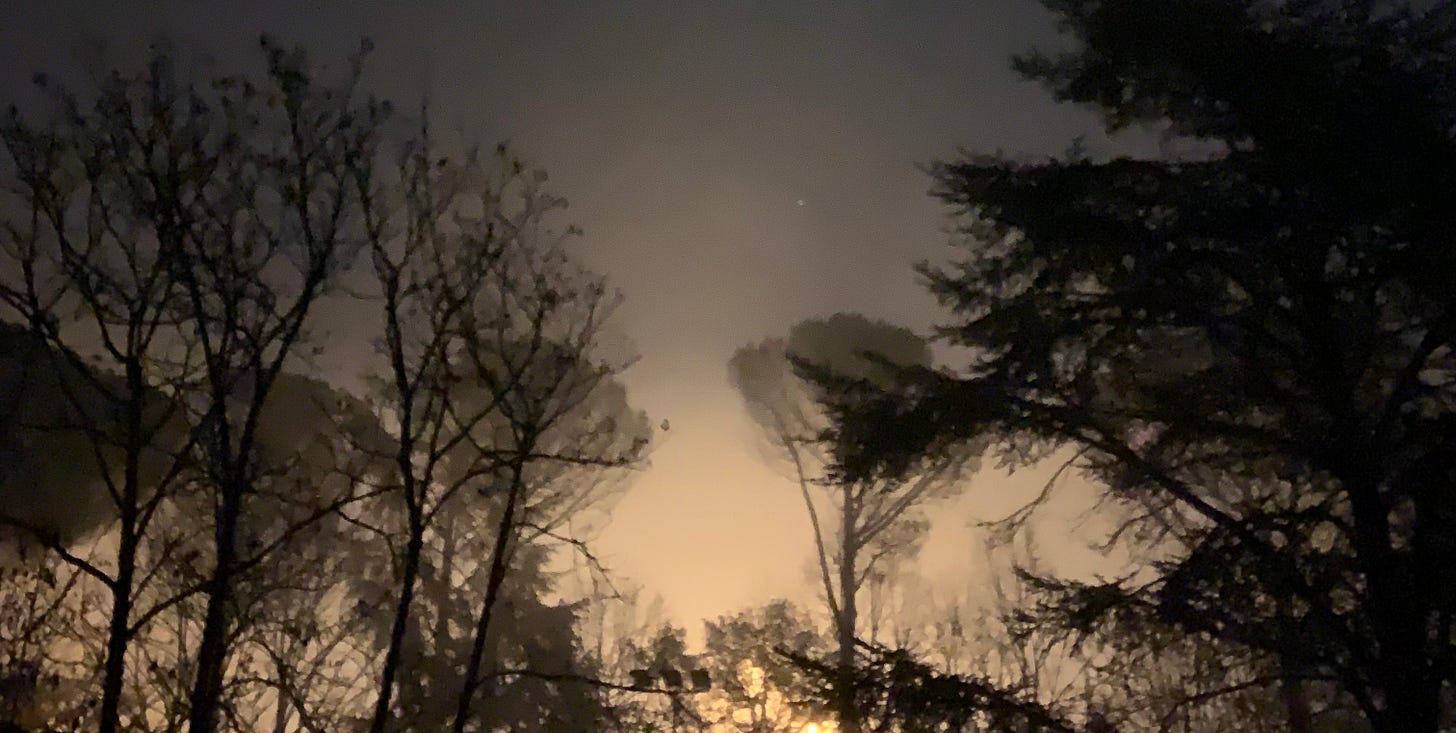Messiah
A Christmas question
The people who walked in darkness / have seen a great light;
those who dwelt in a land of deep darkness, / on them has light shined.
Thou hast multiplied the nation, / thou hast increased its joy;
they rejoice before thee as with joy at the harvest, / as men rejoice when they divide the spoil.For the yoke of his burden, / and the staff for his shoulder,
the rod of his oppressor, / thou hast broken as on the day of Midian.
For every boot of the tramping warrior in battle tumult / and every garment rolled in blood
will be burned / as fuel for the fire.For to us a child is born, / to us a son is given;
and the government will be upon his shoulder, / and his name will be called "Wonderful Counselor,
Mighty God, / Everlasting Father, / Prince of Peace."Of the increase of his government / and of peace there will be no end,
upon the throne of David, / and over his kingdom,
to establish it, and to uphold it / with justice and with righteousness / from this time forth and for evermore.The zeal of the LORD of hosts will do this.
Whether we realize it or not, all of us who have grown up in modern global culture have this 2,500-year-old text in our very DNA. Isaiah’s grand poetic synthesis of Israel’s messianic theology was the lens by which the New Testament authors reflected on their own experience of the life, death and resurrection of Jesus of Nazareth. And so this book ended up structuring the very foundations of the self-understanding of the Christian world. Even the currents of modernity that have most radically rejected Christianity still operate within Isaiah’s overall framework, and are inconceivable without him. This is why this text – which the Latin Church reads today at Midnight Mass – continues to possess such a universal appeal. And why it can serve as a powerful instrument for the calm and profound dialogue on the fundamental questions of human existence that we so urgently need today.
The first thing that stands out in this poem is the portrait of humanity’s actual situation, explaining why we need a Messiah. We walk and dwell in darkness – a darkness that makes it impossible to know where we are going or take the right road. Darkness that provides cover for all the terrors of the night, all the invisible threats to our existence. In this obscurity, human society ends up organizing itself on the basis of slavery and war. According to Isaiah, slavery is not the founding principle of America, but of civilization itself. Ignorance, error, death, oppression, war – these are the features of every epoch of human history, and we all seem to agree that they cry out for a savior.
Given the universality of these evils, hope for their elimination is paradoxical on its face. But this is precisely what Isaiah promises: a radical and irreversible change in history, bringing light and joy into the darkness of the shadow of death, smashing the rod of the taskmaster, incinerating the implements of war. This is to come about through the birth of a child, the initiator of a new humanity. He is able to establish definitive peace and unity because he does not merely imposing his own will against competing factions, but possesses a kind of transcendent authority. Worthy of universal recognition as “mighty God” and “everlasting father,” he can also be the “prince of peace.” While many may be reluctant to identify this figure with an individual person, literally descended from a bronze-age monarch, even these parts of the poem still resonate at a metaphorical level.
The specific identity of the Messiah is the real question that divides us. Is he to be identified with the ideal of equality? With technological domination of nature? With a political movement that overthrows the corrupt elites? With a strong national or racial identity? All of these answers have a certain appeal — they seem to ground themselves in a universal principle of rationality or biology that could ground the new age. But the Christmas season invites us to at least consider the possibility that the tiny baby lying in the manger is the Messiah after all.
This is a challenging task even for professed Christians, since we too are tempted by other Messiahs. If this Child really is the Messiah, how can Isaiah’s bleak description of humanity’s situation still apply so aptly, 2,000 years after his arrival? How can human necks still bend under the yoke? How does the boot still tramp in battle? These questions bring us to the heart of Christian theology, to what Paul called the “scandal of the Cross.” Already during the lifetime of Jesus, his failure to crush his enemies generated considerable doubt and consternation among those who otherwise were convinced of his messianic authority. Even John the Baptist, the one who first identified him publicly as the Anointed One, seems to have been given pause by Jesus’ failure to immediately “cleanse his threshing floor.” And his declared intention to willingly embrace death at the hands of his opponents probably was one of the main motives prompting Judas to jump ship before things turned ugly.
Taking the Child’s messianic claim seriously thus implies taking a fresh look at the New Testament, attentive to how the authors made sense of Jesus’ apparent failure as central to his overall messianic strategy. And it prompts us to ponder whether their approach can still be a viable lens for reading the subsequent two millennia of Christian history — including our own times. If Jesus really is the Messiah, then the words of Isaiah must already be fulfilled, even if only as a seed that is still just beginning to sprout. And the incomplete nature of the fulfillment means that you and I have a part to play in the story.

